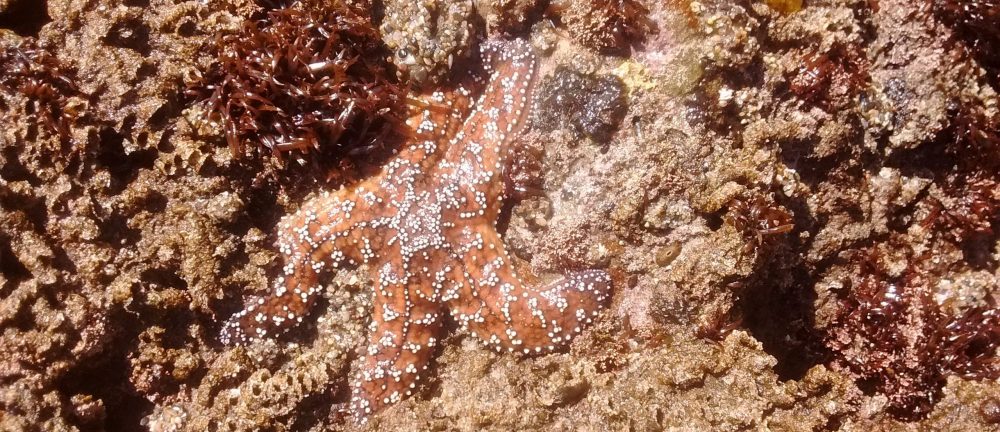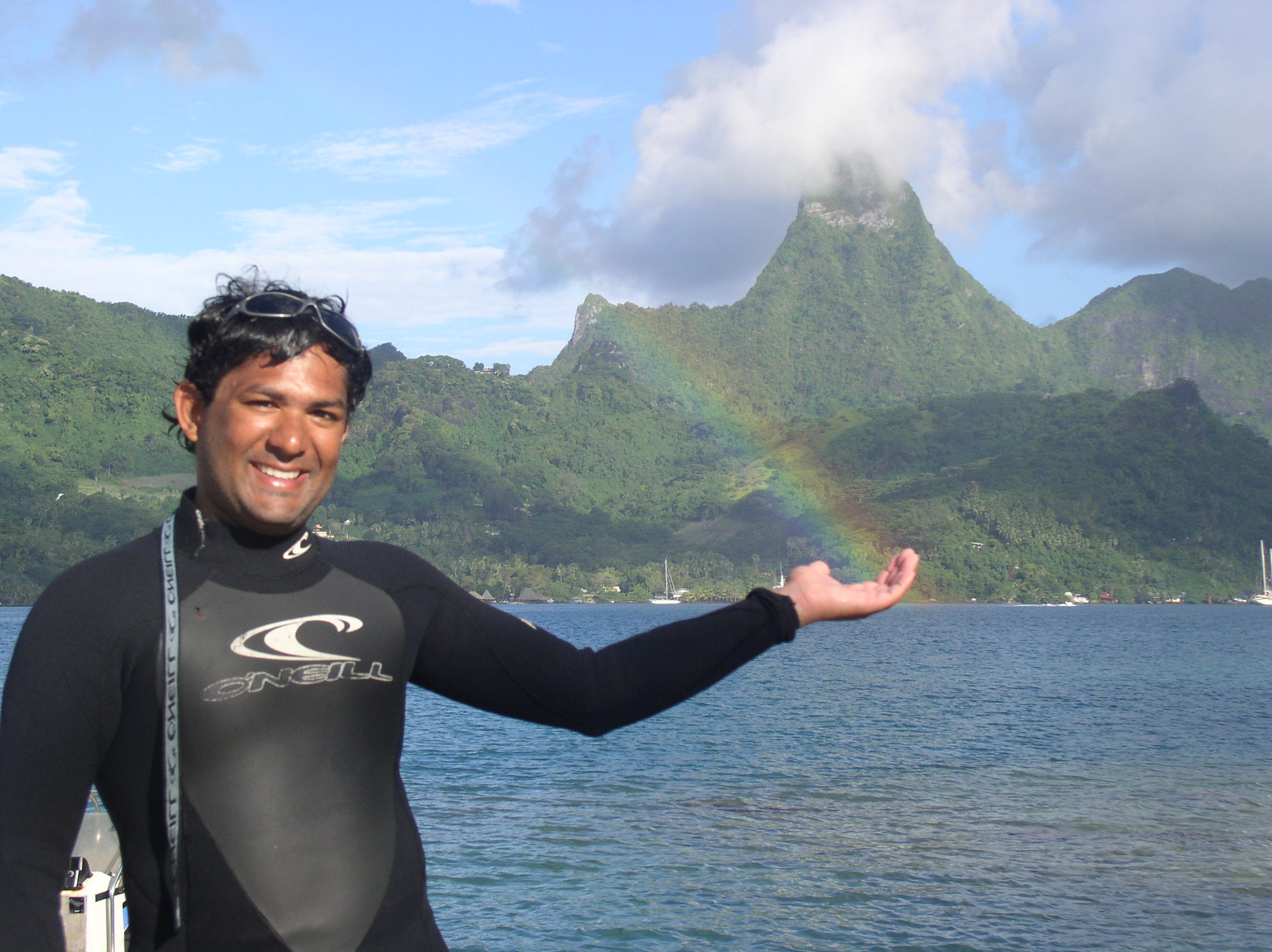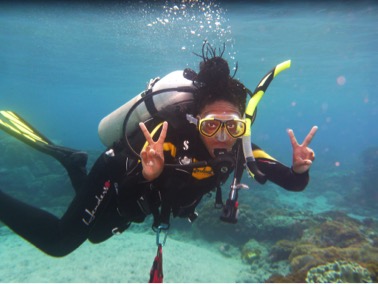 Camille Gaynus
Camille Gaynus
Originally from Philadelphia, Camille Gaynus received her B.S. in Marine and Environmental Science from Hampton University. Recently, she received her doctorate degree from the Ecology and Evolutionary Biology Department at UCLA. Working along her advisor, Peggy Fong Camille’s research focuses on understanding the mechanisms, namely anthropogenic, that lead to algal proliferation in coral reef systems. Much of Camille’s current research takes place in Mo’orea French Polynesia where she focuses on turf algae growth in response to changes in sedimentation and grazing patterns. Even though much of her research takes place in the eastern pacific, Camille traveled to Bali Indonesia with The Diversity Project (https://tdp.eeb.ucla.edu) run out of UCLA for an intensive two months of research among the worlds most biodiverse region. This experience was a defining moment in Camille’s education that led her to pursue a PhD, and she continues to work with the program as a peer mentor every summer as they now travel to Mo’orea.
Ph.D., Ecology & Evolutionary Biology, UCLA, 2019
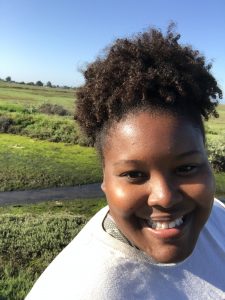 Tiara Moore
Tiara Moore
Estuaries are highly productive and diverse ecosystems that are important for humans as well as birds, fish and numerous other marine species. Estuaries can be greatly affected by anthropogenic disturbances, yet local California estuaries remain under studied. Evidence from estuary research suggests, however, that increased human populations within watersheds can lead to higher levels of nutrients entering estuaries at higher rates. This buildup of organic matter, often as a result of nutrient enrichment, is known as eutrophication. In California, estuaries may be particularly vulnerable to eutrophication as their watersheds, though small, typically are comprised of large human populations and/or extensive agricultural development. Ocean acidification normally occurs when excess atmospheric CO2, usually from anthropogenic sources, reacts with the surface ocean water and increases the amount of carbonic acid in the water. An alternative mechanism promoting acidification that has only recently been uncovered is an increase in CO2 due to microbial respiration driven by eutrophication. I am currently conducting a study to determine if there is a relationship between nutrient-stimulated eutrophication and estuarine acidification in local California estuaries. Results of this study will lead to an understanding of the relationship between eutrophication and estuarine acidification, and provide vital management and restoration information.
B.S. Winthrop University, 2011, Biology
M.S. Hampton University, 2013, Biology with concentration in Environmental Science
Ph.D., Ecology & Evolutionary Biology, UCLA, 2019
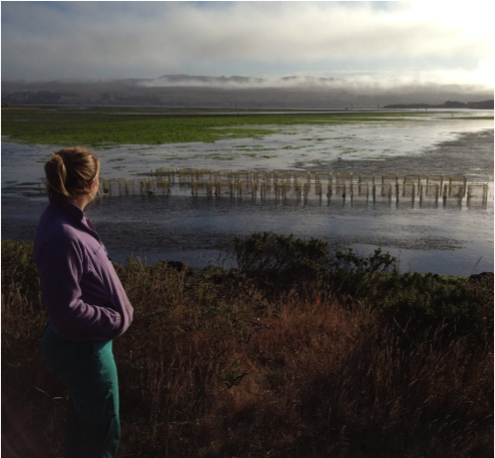 Sarah Joy Bittick
Sarah Joy Bittick
I am a marine community ecologist interested in how multiple anthropogenic pressures influence trophic structure, species diversity, and overall community dynamics. My dissertation research focuses on how human manipulations to the controlling forces of nutrient input (bottom-up) and herbivory pressure (top-down) can degrade a primary seagrass foundation species but facilitate a secondary algal foundation species. I also investigate the cascading effects to higher trophic levels such as herbivorous fish and invertebrates caused by changes to the abundance of these two foundation species.
For more information visit my personal website: http://sarahjoybittick.org
B.S. Marine Biology, UCLA, 2009
Ph.D., Ecology & Evolutionary Biology, UCLA, 2017
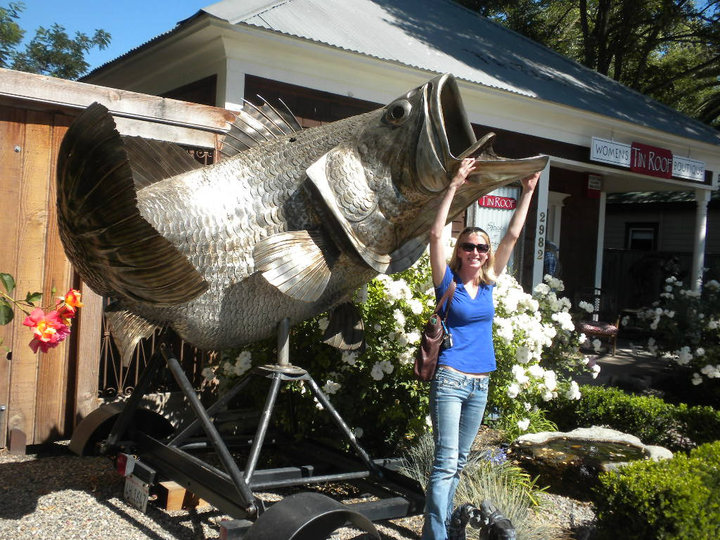 Stacie Fejtek
Stacie Fejtek
While studying aquatic biology at the University California Santa Barbara as an undergrad I worked in a variety of coastal systems (coral, kelp forest, and salt marsh). Through my masters thesis work at San Diego State University, where I focused on the ecology of Elk Kelp (Pelagophycus porra), I gained the ability to formulate questions and experiments that could answer accumulating policy problems. I have worked for several agencies including the Santa Monica Baykeeper, Partnership for Interdisciplinary Studies of Coastal Oceans (PISCO) at UC Santa Cruz, and the Channel Islands National Park Service Kelp Forest Monitoring program giving me the opportunity to work on a wide breadth of conservation issues. My doctoral work at University California Los Angeles is through the multidisciplinary Environmental Science and Engineering (ESE) program. During the ESE program I worked on developing a guide for best management practices for restoration of southern California coastal wetlands. I am currently working with the National Oceanic and Atmospheric Administration‘s Restoration Center (NOAA RC) to provide technical monitoring and support for restoration projects for endangered species from headwater to ocean while completing my dissertation which focuses restoration and recovery of endangered Southern Steelhead.
For more information on …
UCLA’s Environmental Science & Engineering program: http://www.environment.ucla.edu/ese/
Southern California Wetland Restoration BMP Guide: http://www.environment.ucla.edu/newsroom/best-practices-for-southern-california-coastal-wetland-restoration-and-management-in-the-face-of-climate-change/
NOAA Restoration Center: http://www.habitat.noaa.gov/restoration/index.html
Rachel Clau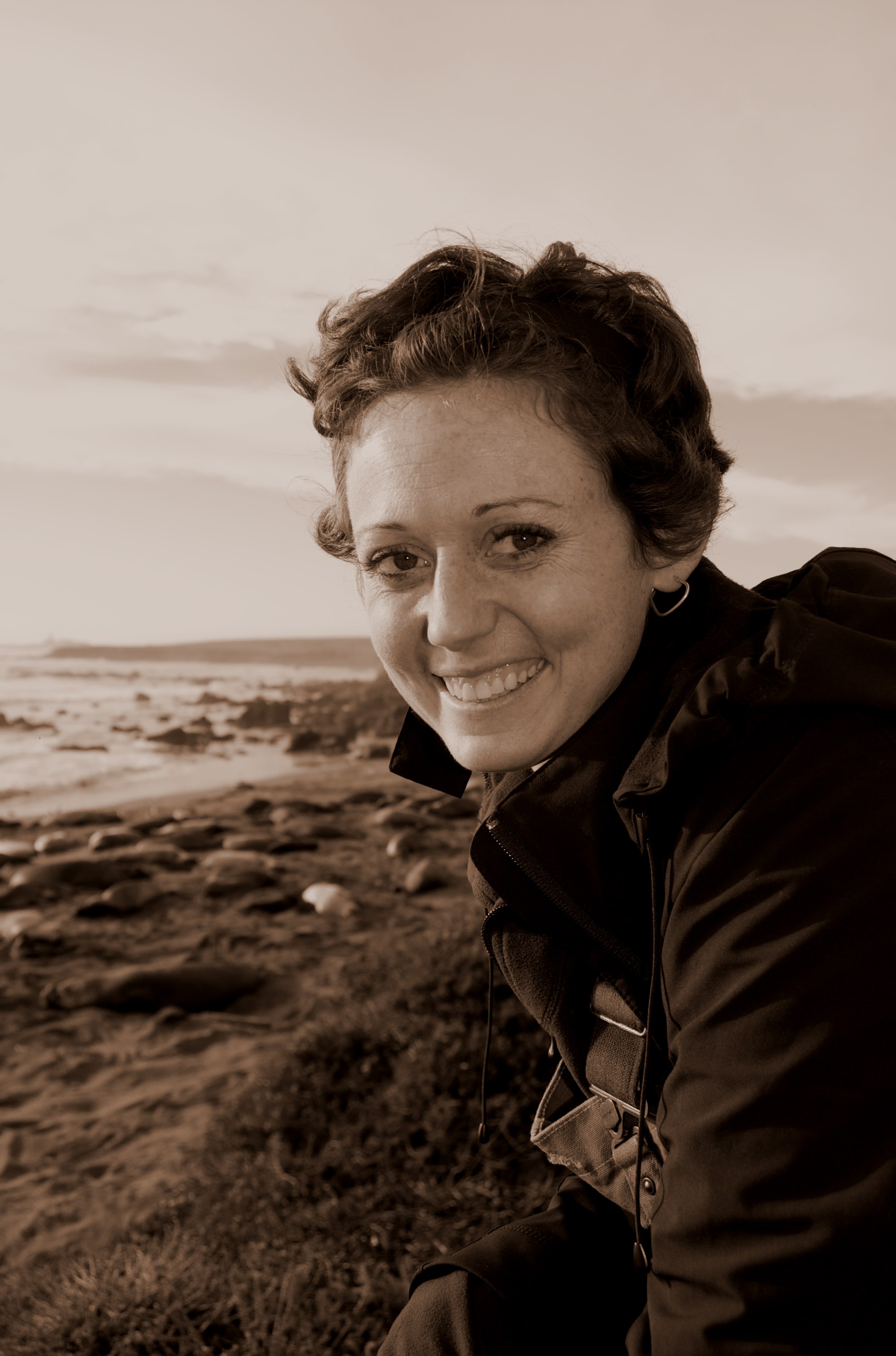 sing
sing
I am interested in processes driving community composition in coastal marine habitats, and how human impacts affect and alter these processes. My PhD focuses on the effects of anthropogenic nutrient inputs on rocky shore biodiversity and ecosystem function in areas of varying degradation. This work involves long-term field manipulations, laboratory experiments, and stable isotope analyses across California and New Zealand. The goal of this research is to provide insight into the spatial variability and context-dependency of the consequences of nutrient enrichment in order to aid in prediction of future degradation and inform coastal
management decisions.
Ph.D., Ecology & Evolutionary Biology, UCLA, 2014
Responses of marine macroalgae to short and long-term changes in nutrient availability under varying environmental conditions
B.S., Rosenstiel School of Marine and Atmospheric Science, University of Miami
Ranjan Muthukrishnan
Ranjan is broadly interested in community ecology. For his PhD, he used a combination of observational, experimental, and modeling methods to study the effects of human-induced stresses, such as increased sedimentation, nutrient runoff, and herbivory on coral reefs. Coral declines have been associated with community shifts from coral dominated to fleshy macroalgae or algal turf dominated reefs. He studied these transitions, looking for threshold events that lead to catastrophic state changes and internal mechanisms that stabilize reefs in both the coral and algal dominated states. Particularly in the light of global climate change, understanding how communities will respond to changing environmental conditions is key to predicting if ecosystems will persist and what they will look like in the future. For more info, visit his web site: http://www.ioe.ucla.edu/ctr/staff/Muthukrishnan_Ranjan.html
Ph.D., Ecology & Evolutionary Biology, UCLA, 2013
An integrated empirical and modeling approach to evaluate determinants of community structure and alternate stable states dynamics on tropical reefs
B.A., Integrative Biology, University of California, Berkeley
Contact: mrunj@ucla.edu
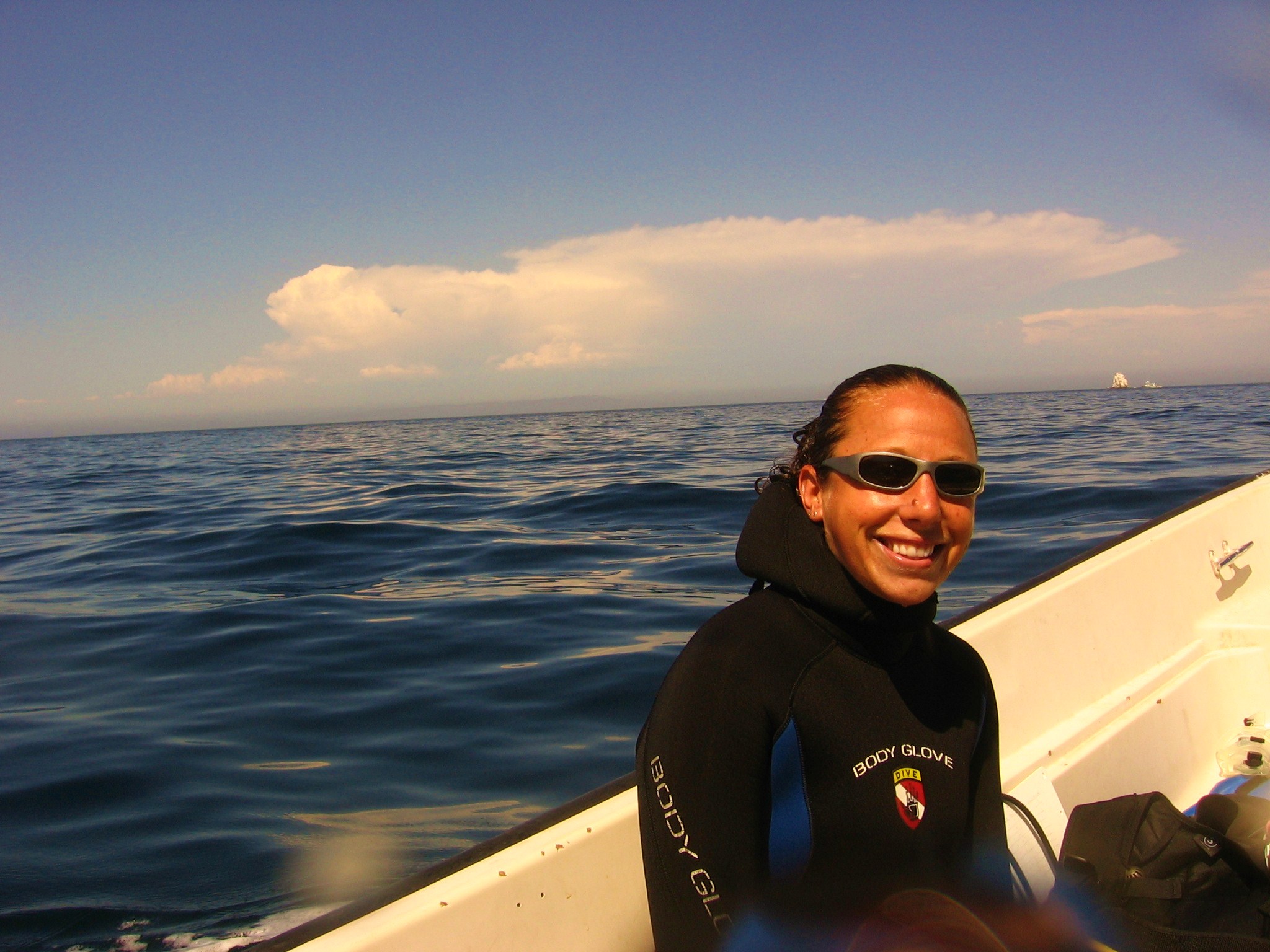 Sara Kappus
Sara Kappus
For her PhD research, Sara used the Catalina Blue Banded Goby as a model species to examine how the threat of predators, population density and population sex ratio may interact to influence per-capita reproduction and sex change of a temperate marine fish, and to determine if these processes are density-dependent. In the future, Sara would like to do research to increase understanding of the ecology and biology of marine fish populations in order to assist the development of better management strategies to preserve, protect and manage coastal ecosystems.
Ph.D., Ecology & Evolutionary Biology, UCLA, 2012
The influence of population density and sex ratio on reproduction and sex change of a temperate reef fish, Lythrypnus dalli
B.S., Marine Biology, University of California, Santa Cruz
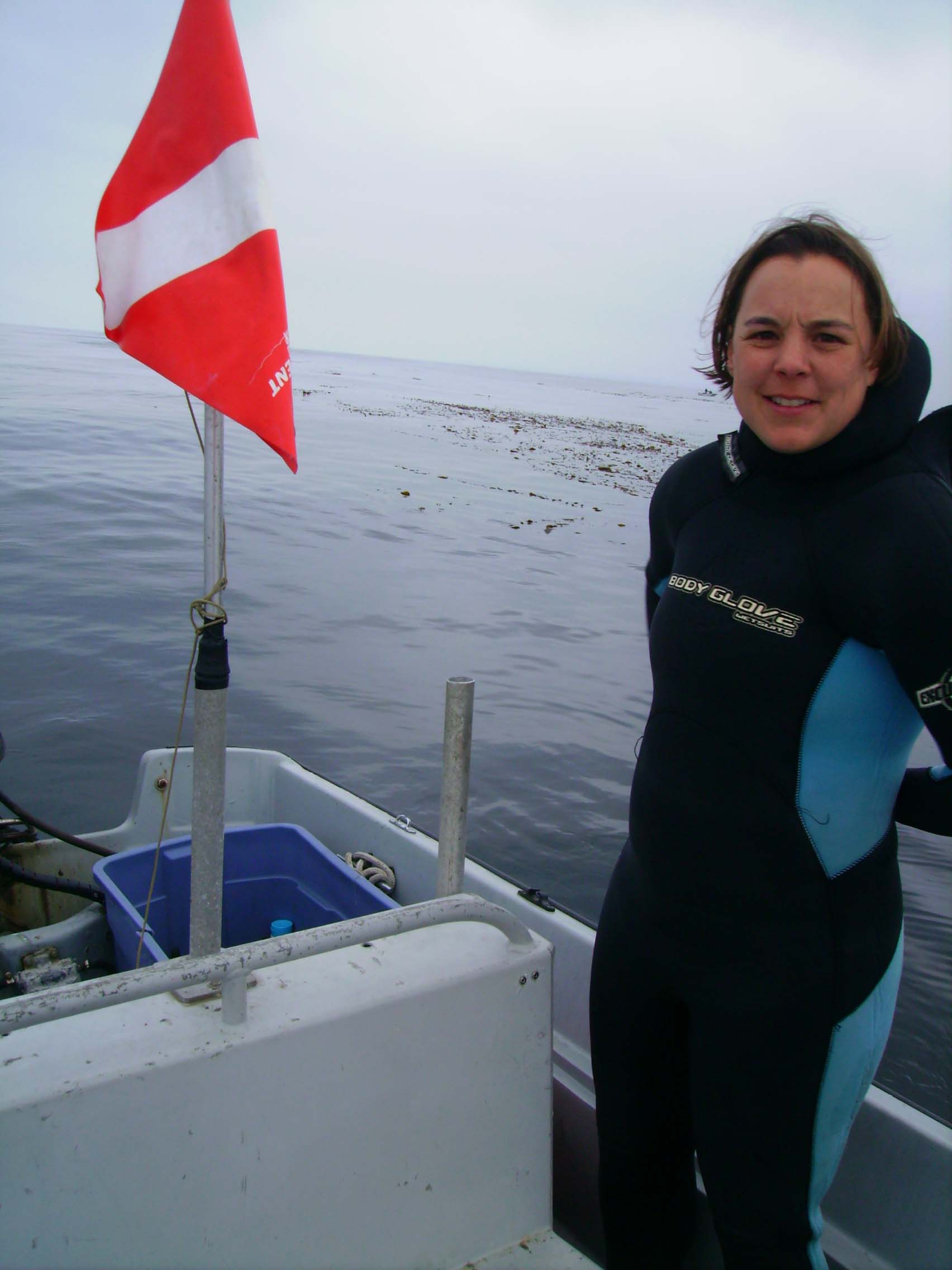 Sarah Bryson
Sarah Bryson
Sarah is a marine community ecologist. She is interested in how context determines the direction of ecological interactions and the subsequent effects on community function. Sarah’s PhD research examined the role of an early colonizing plant in facilitating other vegetation under saline conditions in a vegetated salt marsh and in competing with other vegetation under hypersaline conditions in salt pannes. She also examined the effect of an encrusting bryozoan on giant kelp, which shifted from providing associational resistance to promoting grazing depending on the composition of the grazing guild.
Ph.D., Ecology & Evolutionary Biology, UCLA, 2012
Community-dependent positive interactions in southern California coastal ecosystems
B.S., Biology, Brown University
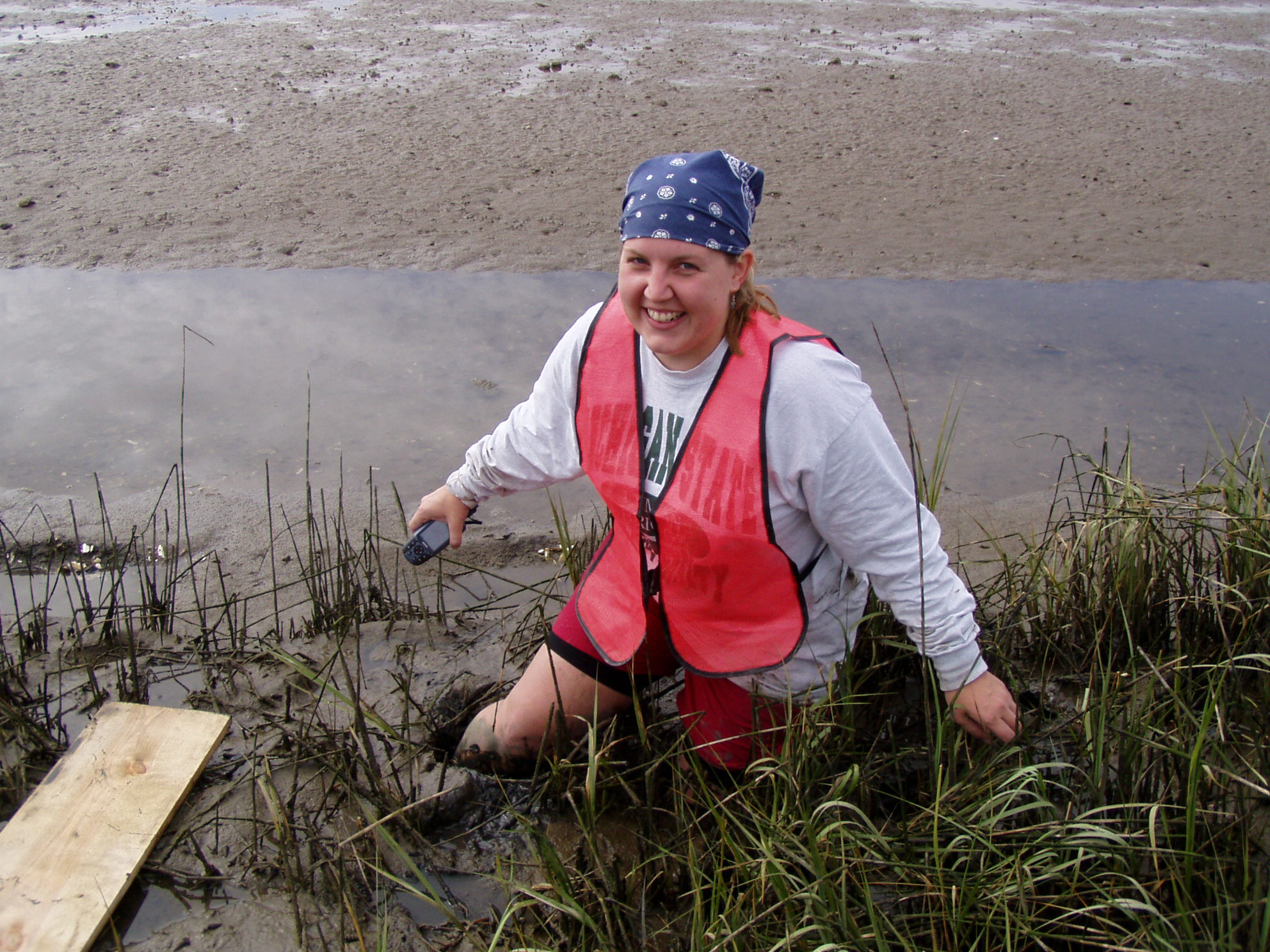 Tonya Kane
Tonya Kane
Tonya is a marine ecologist with a biogeochemistry twist. Her PhD research focused on nutrient dynamics in estuaries along the southern California coast, where she studied the microbial processes of nitrogen fixation and denitrification in estuarine sediments using field surveys and experimental approaches. She is especially interested in how human impacts can affect nutrient dynamics in coastal ecosystems. Tonya is passionate about communicating science to a diverse audiences, and worked for several years as an assistant to the COSEE-West program. She also is interested in how research and policy can work together to solve problems in coastal marine habitats. In 2009, Tonya spent a year in Washington, D.C. as a NOAA Sea Grant John A. Knauss Marine Policy Fellow.
Ph.D., Ecology & Evolutionary Biology, UCLA, 2012
Nitrogen fixation and denitrification in sediments of eutrophic mediterranean-type estuaries: seasonal patterns and responses to anthropogenic nitrogen inputs
B.S, Microbiology & Environmental Biology, Michigan State University
Contact: tkane@eeb.ucla.edu
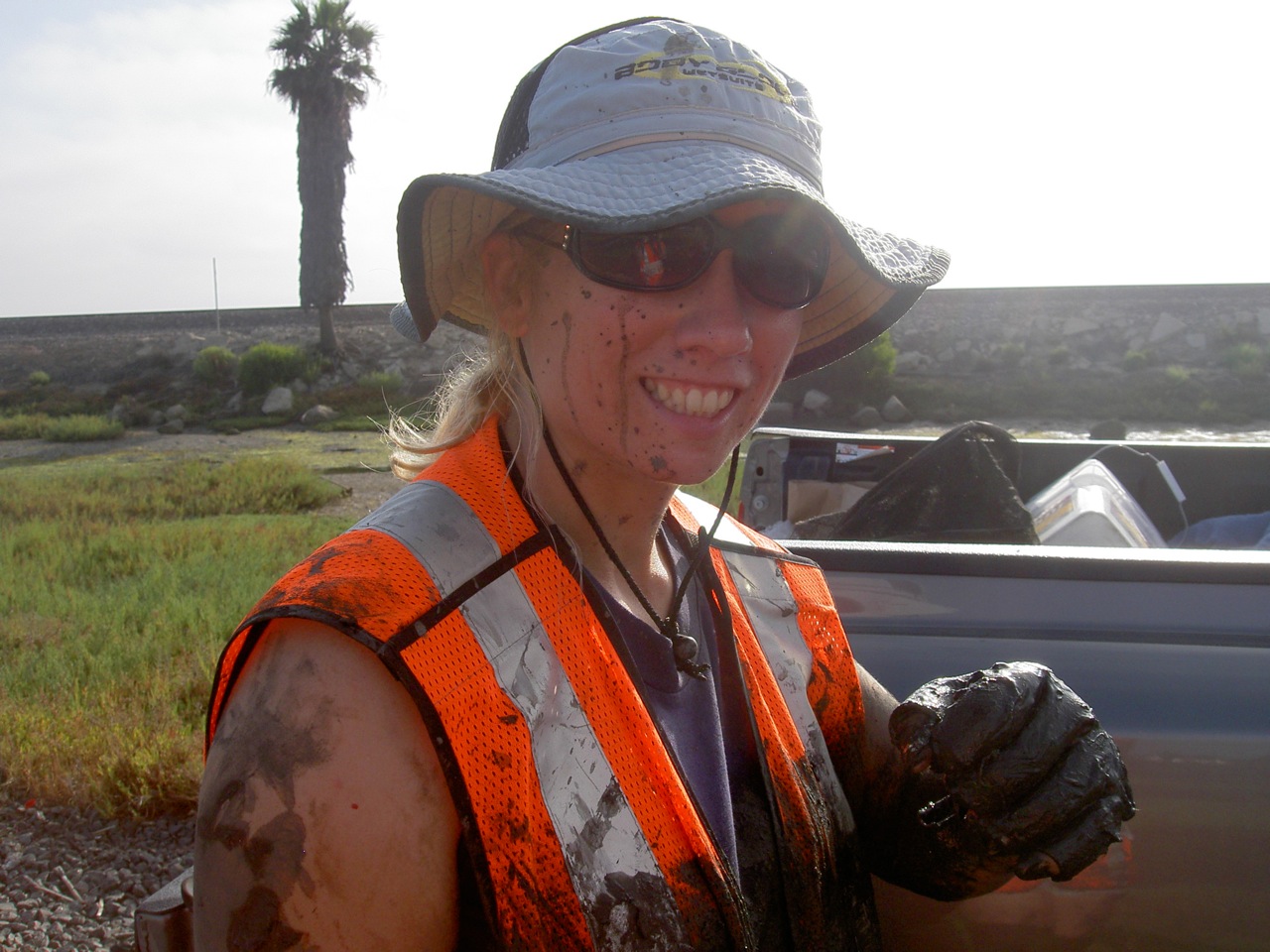 Lauri Green
Lauri Green
Lauri is currently a Post-doc at Florida Atlantic University investigating the effects of nutrient enrichment on seagrass habitat structure and wader bird foraging. Previously, she was a Post-doc in collaboration with the Southern California Coastal Water Research Project (SCCWRP) and UCLA, contributing to a project to establish a Macroalgal Assessment Framework for California. During her PhD she studied the effects of anthropogenic stressors on food web functioning in shallow estuarine and seagrass habitats, specifically, the role of macroalgal mats in shaping benthic community structure, porewater chemistry, and bird foraging behavior.
Ph.D., Ecology & Evolutionary Biology, UCLA, 2010
Macroalgal mats control trophic structure and shorebird foraging behavior in a southern California estuary
B.S., Ecology & Evolutionary Biology, UCLA
Contact: cnidaria79@gmail.com
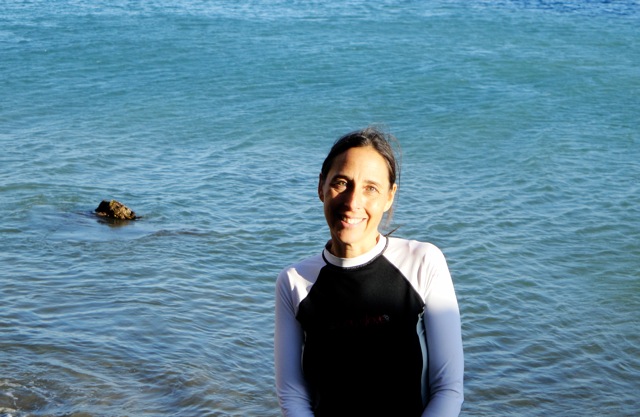 Rachel Kennison
Rachel Kennison
Rachel is currently the program administrator of the Santa Monica College/UCLA Science and Research Initiative, an academic support program designed to help traditionally underrepresented students interested in Science, Technology, Engineering and Math (STEM) careers successfully complete their studies at SMC, transfer to UCLA, and enter the STEM workforce. Prior to this she was the Co-Director of COSEE-West (www.usc.edu/org/cosee-west). Rachel’s PhD research focused on nutrient dynamics and anthropogenic impacts on the functioning of nutrient cycling in 5 southern California estuaries., and included laboratory and field experiments investigatingthe capacity of some algal species to expand habitat types due to their morphology and adaptations to water flow speed.
Ph.D., Ecology & Evolutionary Biology, UCLA, 2008
Evaluating ecosystem function of nutrient retention and recycling in excessively eutrophic estuaries
M.S., Clinical Social Work, Columbia University
B.A., Poetry & Anthropology, Sarah Lawrence College
Contact: rlk@ucla.edu
Matt Wartian
Matt works in environmental consulting, serving as a Director of Business Development at Burns & McDonnell in San Diego, CA. His work focuses on helping clients assess, manage, and restore natural resources, with an emphasis on coastal and marine environments.
Ph.D., Ecology & Evolutionary Biology, UCLA, 2006
Determinants of community structure and resilience on tropical Eastern Pacific coral reefs
B.S., Marine Biology, California State University, Long Beach
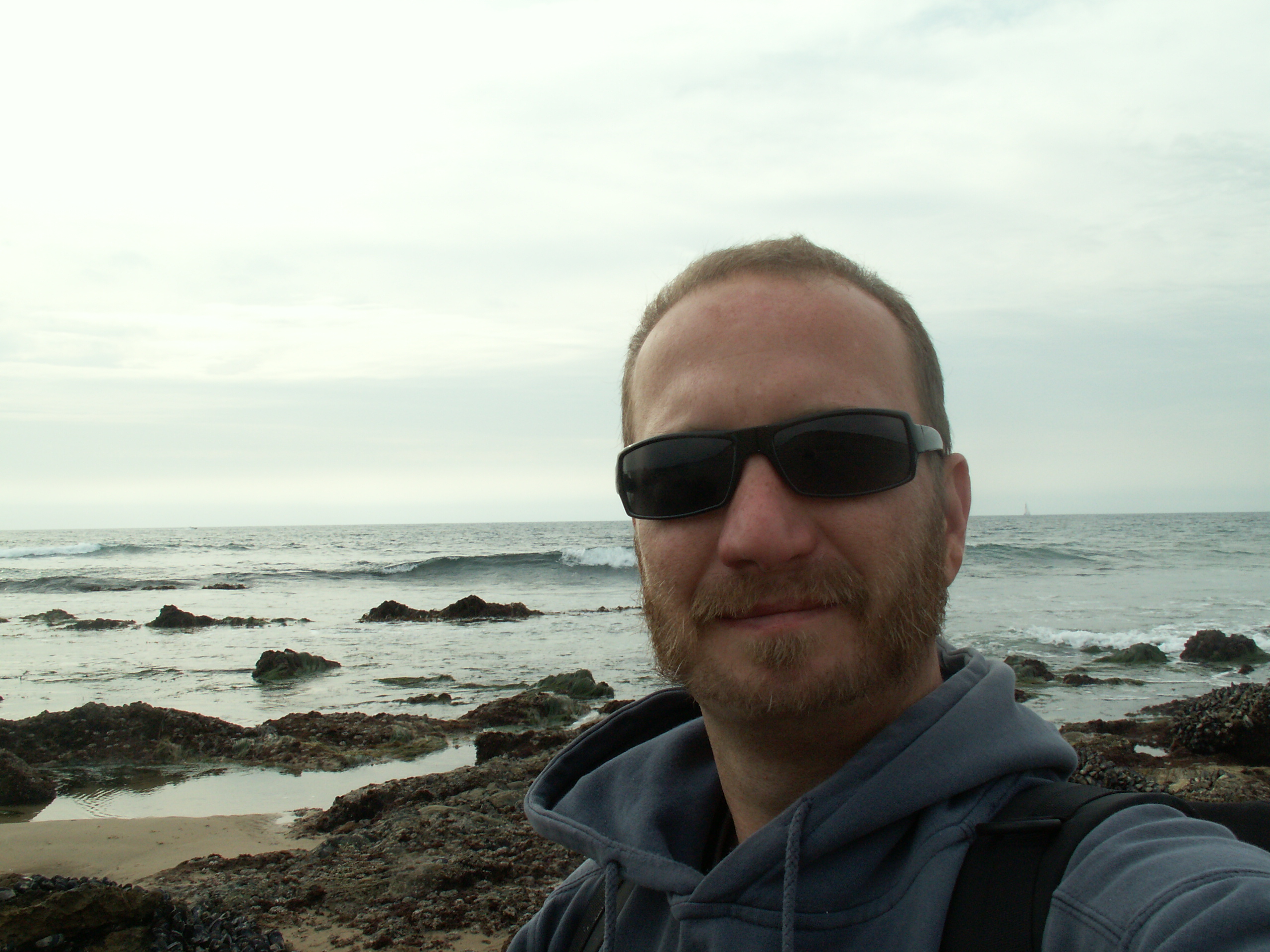 Jayson Smith
Jayson Smith
Jayson is an Assistant Professor in the Biological Science Department at Cal Poly Pomona. He is a marine conservation ecologist with a particular interest in the effects of anthropogenic disturbances on ecosystem functioning and community structure of coastal habitats. He applies his research mostly to rocky intertidal ecosystems, focusing on invasive seaweeds; effects of human visitation; long-term change in community structure and dynamics; effects of climate change; restoration ecology, and environmental policy and management (such as Marine Protected Areas). Previously, Jay was a Post-doc and Lecturer for the Department of Biological Science at California State University, Fullerton.
Ph.D., Ecology & Evolutionary Biology, UCLA, 2005
Factors affecting geographic patterns and long-term change of mussel abundances (Mytilus californianus Conrad) and bed-associated community composition along the California coast
M.A., Biological Sciences, California State University, Fullerton
B.S., Biology & Marine Biology, UCLA
Contact: jaysonsmith@csupomona.edu
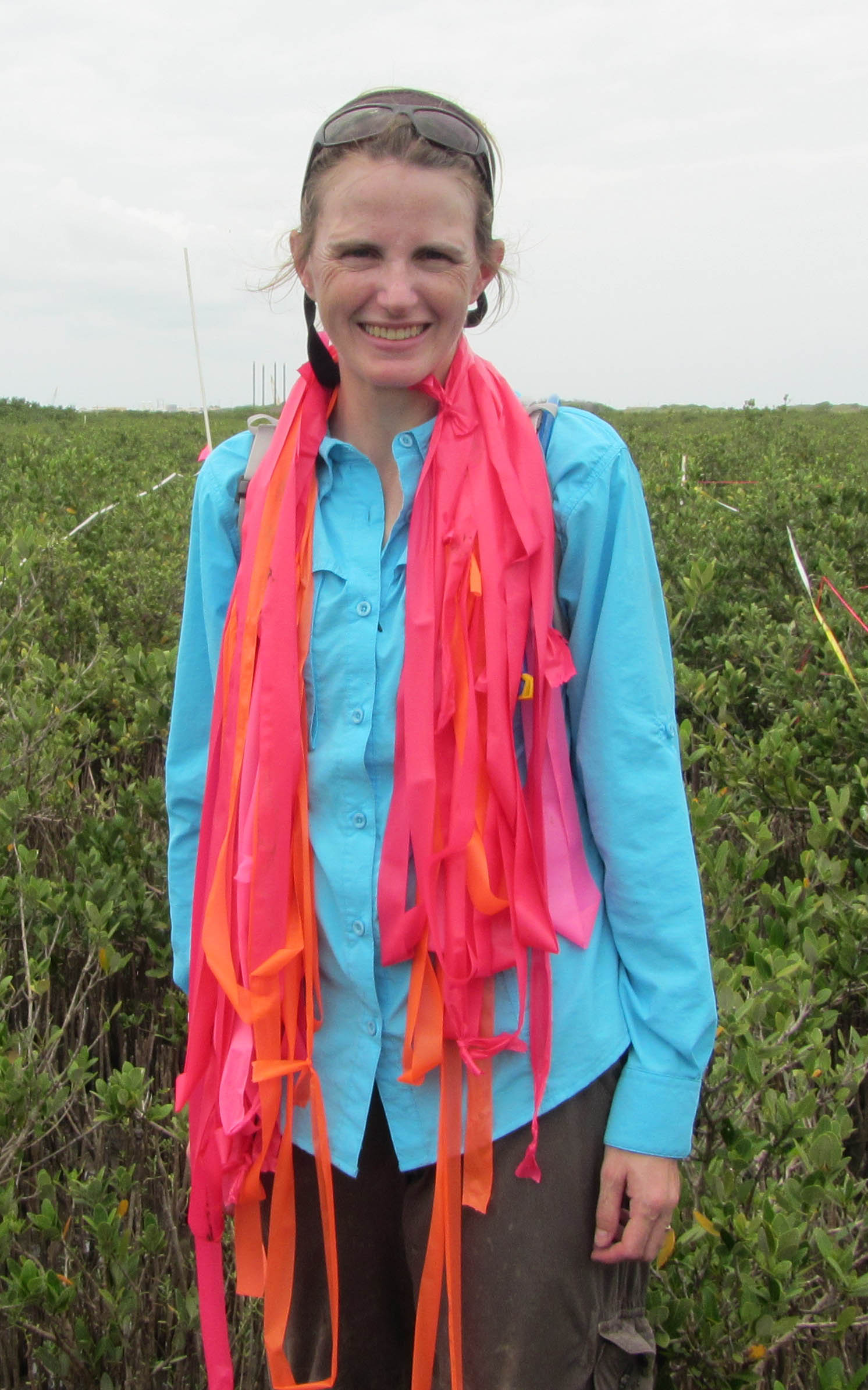 Anna Armitage
Anna Armitage
Anna is an Associate Professor in the Department of Marine Biology at Texas A&M University at Galveston. Her research lab investigates the influence of habitat restoration, nutrient enrichment, climate change, and other anthropogenic disturbances on coastal wetlands, mangroves, and subtidal seagrass beds.
For more information, visit Anna’s lab web site:
http://www.tamug.edu/armitage/
Ph.D., Ecology & Evolutionary Biology, UCLA, 2003
Community structure and trophic interactions in restored and natural estuarine mudflats: complex trophic cascades and positive and negative effects of nutrients
B.S., Marine Biology, UCLA
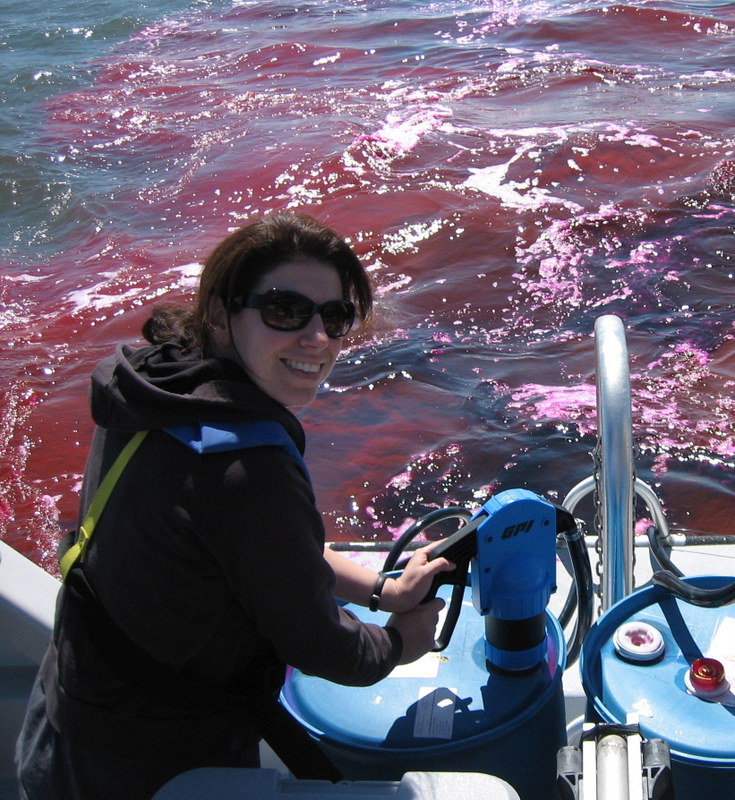 Risa Cohen
Risa Cohen
Risa is an Associate Professor in the Department of Biology at Georgia Southern University. Research in her lab examines how changes in aquatic environments affect organisms, communities, and ecosystems. This information is used to address applied issues, including monitoring, conservation and restoration.
For more information, visit Risa’s web site:
http://www.bio.georgiasouthern.edu/main/facultybio/cohen.html
Ph.D., Ecology & Evolutionary Biology, UCLA, 2003
Physiological responses of a bloom-forming macroalga to eutrophic conditions: implications for use as a bioindicator of freshwater and nutrient influx to estuarine areas
B.S., Biology, Environmental Studies, Tufts University
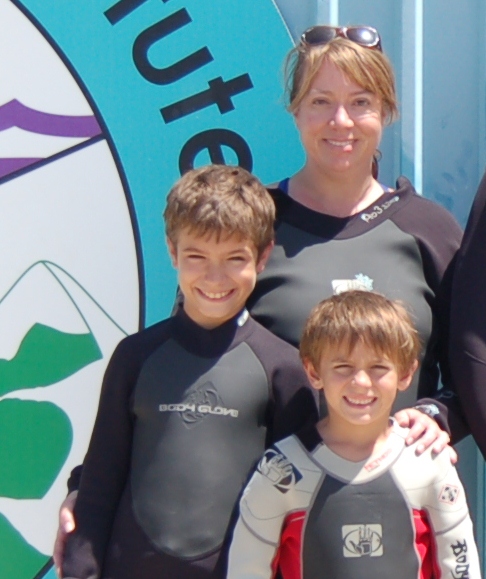 Karleen Boyle Sudol
Karleen Boyle Sudol
Karleen is currently the Executive Director of The Science Place, a company that provides hands-on science enrichment programs to primary school students and gives them experience with experimental design, and data collection, analysis and interpretation before they enter middle school. Her goal is to make science engaging and accessible to children early in their education and to help increase the scientific literacy of our upcoming generation of students. Karleen also does environmental consulting. Her most recent project was a regional air quality monitoring study for the City of Newport Beach, CA.
Ph.D., Ecology & Evolutionary Biology, UCLA, 2002
Investigating nutrient dynamics and macroalgal community structure in an eutrophic southern California estuary: results of field monitoring and microcosm experiments
B.A., English, UCLA
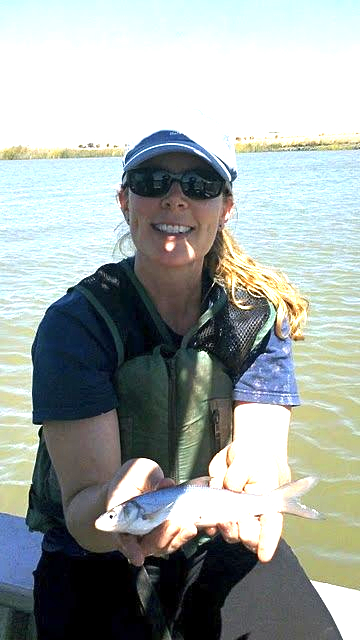 Kathy Boyer
Kathy Boyer
Kathy is an Associate Professor for the Romberg Tiburon Center for Environmental Studies and the Department of Biology at San Francisco State University. Research in her lab focuses on the basic and applied ecology of wet coastal habitats, especially tidal marshes and sea grass beds. The overall aim is to improve understanding of the processes that govern natural communities and to use this knowledge to enhance the effectiveness of restoration and conservation activities in these habitats.
For more information, visit Kathy’s lab web site:
http://online.sfsu.edu/katboyer/Boyer_Lab/Home.html
Ph.D., Ecology & Evolutionary Biology, UCLA, 2002
Linking community assemblages and ecosystem processes in temperate and tropical coastal habitats
M.S., Biology, San Diego State University
B.S., Zoology, University of Maryland, College Park
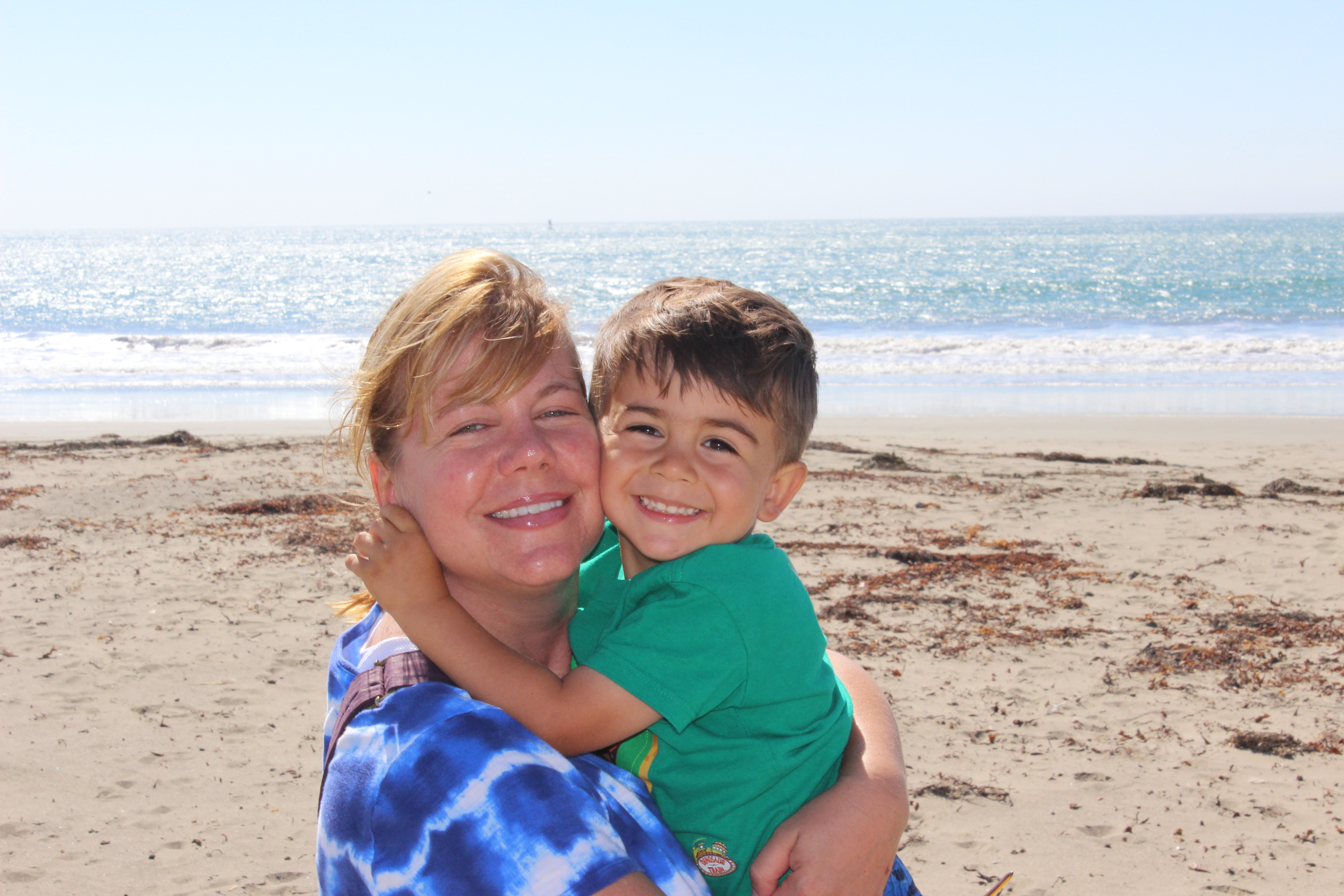 Krista Kamer
Krista Kamer
Krista is the Director of COAST, the California State University Council on Ocean Affairs, Science & Technology (www.calstate.edu/coast), a CSU-wide organization that brings together hundreds of faculty and student scientists to advance our knowledge of California’s natural coastal and marine resources, and the processes that affect them. Previously, she was a staff scientist for the Southern California Coastal Water Research Project (SCCWRP) where she worked on nutrient loading and macroalgal community dynamics.
For more information, visit Krista’s website:
https://fresca.calstate.edu/faculty/41
Ph.D., Ecology & Evolutionary Biology, UCLA, 2000
The influence of nitrogen enrichment and salinity reduction on the estuarine green macroalga Enteromorpha intestinalis
B.A., Biology, Connecticut College
